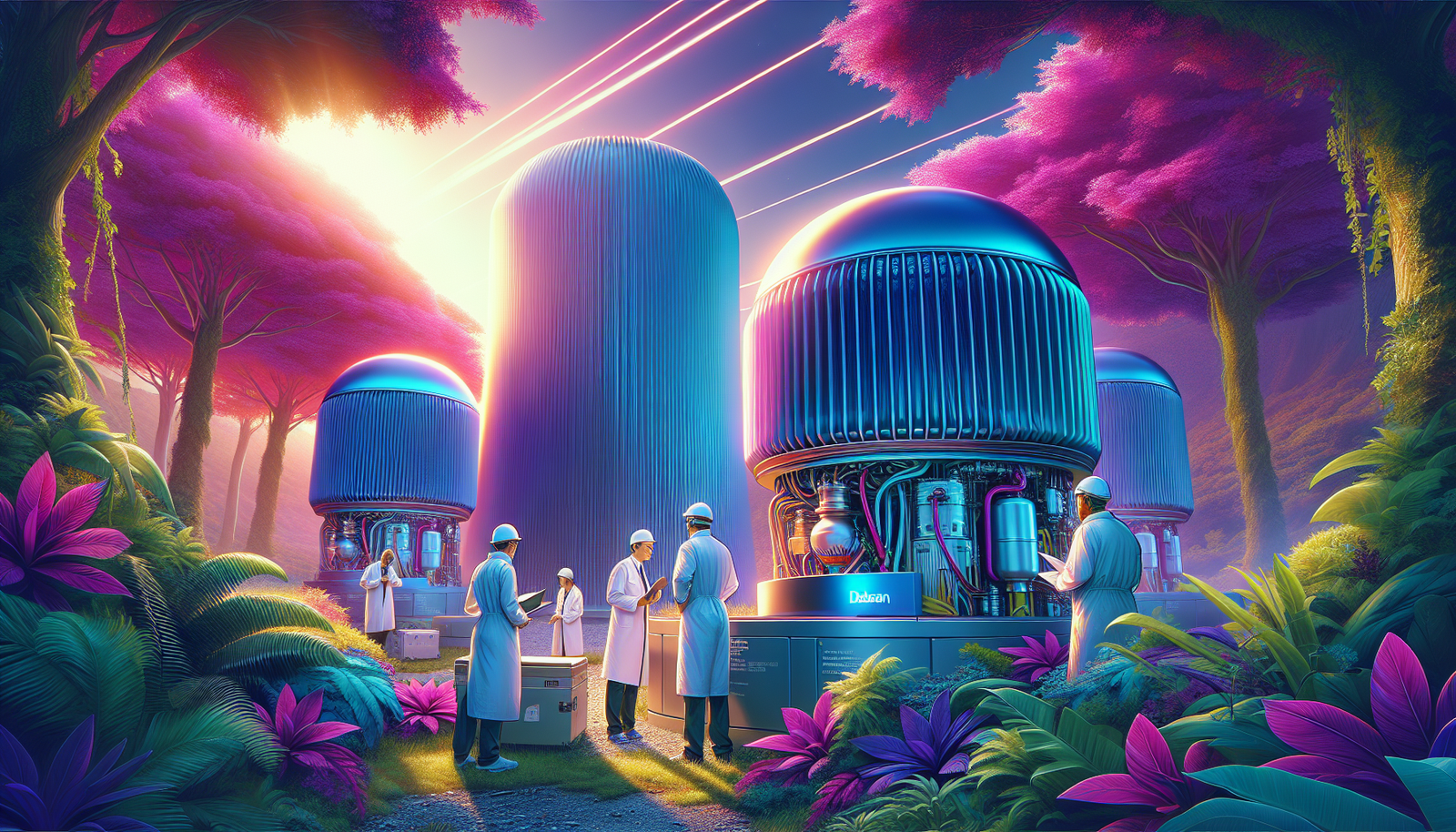Tech Giants Turn to Nuclear Power
Major digital companies are ramping up their research on small modular reactors. Google, a major player in the sector, recently announced that it is forming a partnership with the start-up Kairos Power. This partnership aims to acquire energy produced by next-generation modular reactors. This initiative illustrates a growing phenomenon where giants like Microsoft, Amazon, and Oracle are also investing in this field.
Increased Energy Demand
The energy needs of technology companies are skyrocketing, particularly due to the massive consumption driven by artificial intelligence. Small modular reactors, known as SMRs, appear to be a viable response. These modular structures allow for more flexible and tailored energy production to meet rising demands.
Each technology company seeks sustainable energy solutions to reduce its carbon footprint while addressing rising electricity consumption. Small modular reactors offer an almost limitless supply, thus attracting the attention of decision-makers in this competitive sector.
Features of Small Modular Reactors
SMRs are distinguished by their smaller size compared to traditional nuclear reactors. Their design facilitates integration into various infrastructures, particularly in urban settings. The innovative technology of these reactors also reduces operational resource needs, making them more economically viable.
In addition to their reduced scale, small modular reactors are modular, allowing for on-demand installations. This flexibility optimizes the management of diverse energy needs for modern companies. Thus, the potential of these reactors to transform the energy landscape is undeniable.
Implications for the Industry
The shift towards modular nuclear reactors could significantly alter the dynamics of the energy market. Digital giants, by becoming energy producers, are no longer just consumers. They are taking an active role alongside energy players to shape the energy future in a way that meets their specific needs.
A New Energy Era on the Horizon
Investments by tech giants in the nuclear sector mark a turning point. There is a growing consensus that small modular reactors could play a fundamental role in the global energy transition. In the face of increasing energy demand, the flexibility and efficiency of SMRs prove to be a valuable asset.
This orientation towards nuclear power also addresses a desire to diversify energy sources while combining safety and sustainable development. Discussions on social acceptability and nuclear safety regulations are advancing rapidly, accompanying this evolution.
FAQ on Small Modular Reactors and Their Impact on Tech Giants
What is a small modular reactor and how does it work?
A small modular reactor, also known as a small modular reactor (SMR), is a compact and scalable energy production facility that uses nuclear fission to generate electricity. These reactors are designed to be safer, less expensive, and more flexible than traditional nuclear reactors.
Why are tech giants like Google investing in small modular reactors?
The tech giants are seeking sustainable energy solutions to power their expanding data centers. Small modular reactors can provide a stable, low-carbon energy source, thus addressing the growing energy needs related to artificial intelligence and online services.
What advantages do small modular reactors offer compared to traditional energy sources?
Small modular reactors have several advantages, including a reduced environmental footprint, the ability to operate continuously, and stable energy production without relying on weather conditions. They are also modular, which allows them to be deployed incrementally based on needs.
What role does the start-up Kairos Power play in Google’s nuclear energy initiative?
Kairos Power is a start-up specializing in the development of small modular reactors. Google has signed a partnership with this company to acquire energy produced by these reactors. This partnership illustrates Google’s commitment to integrating innovative and sustainable energy solutions into its operations.
Are small modular reactors safe for the environment?
Yes, small modular reactors are designed with rigorous safety standards and use advanced technologies to minimize accident risks. Additionally, their low nuclear waste production and ability to reduce greenhouse gas emissions make them an attractive option for environmentally-conscious companies.
What impact could the adoption of small modular reactors have on the energy market?
The adoption of small modular reactors could transform the energy landscape by providing a reliable and sustainable alternative to fossil fuels. It could also spur innovation in the energy sector, lead to price cuts, and enhance competitiveness in global markets.
Are there ethical concerns related to the use of small modular reactors?
Yes, there are ongoing concerns about nuclear waste management, installation safety, and the impact on local communities. However, companies and governments are working on policies and technologies to mitigate these concerns.
How do small modular reactors fit into the sustainability strategy of tech companies?
Small modular reactors are part of initiatives aimed at achieving carbon neutrality. By adopting these technologies, tech companies like Google hope not only to meet their energy needs but also to promote sustainable practices that will contribute to a greener energy future.






